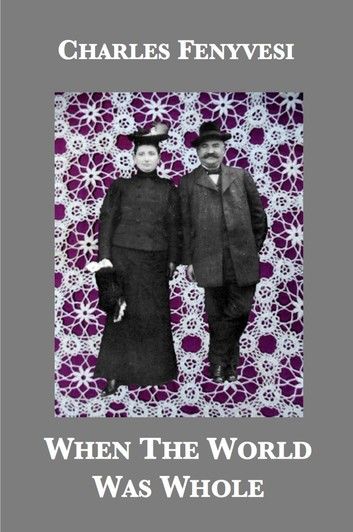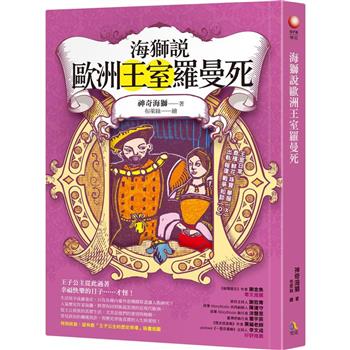| FindBook |
有 1 項符合
When The World Was Whole: Three Centuries of Memories的圖書 |
 |
When The World Was Whole: Three Centuries of Memories 作者:Charles Fenyvesi 出版社:Plunkett Lake Press 出版日期:2013-01-17 語言:英文 |
| 圖書館借閱 |
| 國家圖書館 | 全國圖書書目資訊網 | 國立公共資訊圖書館 | 電子書服務平台 | MetaCat 跨館整合查詢 |
| 臺北市立圖書館 | 新北市立圖書館 | 基隆市公共圖書館 | 桃園市立圖書館 | 新竹縣公共圖書館 |
| 苗栗縣立圖書館 | 臺中市立圖書館 | 彰化縣公共圖書館 | 南投縣文化局 | 雲林縣公共圖書館 |
| 嘉義縣圖書館 | 臺南市立圖書館 | 高雄市立圖書館 | 屏東縣公共圖書館 | 宜蘭縣公共圖書館 |
| 花蓮縣文化局 | 臺東縣文化處 |
|
|
When The World Was Whole: Three Centuries of Memories by Charles Fenyvesi (76,000 words, 40 illustrations)
In this family memoir, Charles Fenyvesi brings back to life his ancestors who loved and improved the poor soil they tilled in northeastern Hungary, kept the countless rules of their Jewish faith, and trusted Providence. Unlike their co-religionists who wandered about, always on the lookout for better opportunities elsewhere, they stayed in the same small village far from cities and main highways — and bound for the family cemetery whose hoary age remains a secret known only to family members. They lived at peace with their neighbors — Greek Catholic, Roman Catholic, and Calvinist — and joined their passionate struggle for independence from the Austrian Empire, then a great power on the European continent. Fenyvesi collected their stories, part verified history and part misty legend, about their travels searching for beautiful brides and running into wise rabbis who dispensed blessings. Nothing is accidental in their world of secret symmetries and unexpected re-enactments.
“… in his exceptional family memoir, [Fenyvesi] produce[d] a family and social history that is both enchanting and devastating… Each chapter of the book has its own special charm, but those dealing with his grandparents are especially lovely and loving… As Mr. Fenyvesi writes, 'We can still recapture bits and pieces from a world that was once whole, in which lives were aligned in secret symmetries, one good deed invoked another, and a gift from heaven passed from one generation to the next. Telling stories about such a world helps restore it.' He is so right, and he has done his job so well.” — Jeff Kisseloff, New York Times
“Drawing on the records and recollections of his relatives, Charles Fenyvesi chronicles his Hungarian family's rise under the Hapsburgs, its fall in World War I and its near extinction under the Nazis. He has written 'a family and social history that is both enchanting and devastating,' Jeff Kisseloff said here last year.” — New York Times
“A historical, anecdotal, sentimental, and rather charming romp through the author's ancestral Hungarian homeland… After an exercise in family history, lore, and genealogy, Fenyvesi often transcends the particulars to present a nostalgic picture of the neatly fenced fields of a once 'whole' world.” — Kirkus Reviews
“… I was prepared to enjoy When the World Was Whole from the moment that I glanced at the author's photograph on the dust jacket. His sly smile, the gleam in his eyes, and even the lines on his careworn face hold out the promise of worldly-wise good humor and tales well told. And when I read Charles Fenyvesi's marvelous stories of Jewish life in Hungary in bygone times, I discovered that my intuition was wholly correct… in Fenyvesi's hands, the memories turn out to be a rich legacy… Fenyvesi's book … is an unabashed (and unashamedly sentimental) celebration of a world of grace and beauty, a world of order and balance. Each vivid character in Fenyvesi's stories somehow ennobles and enriches the lives of others… Fenyvesi's rich prose is redolent of worked earth” — Los Angeles Times
“[Fenyvesi] presents a synchronic vision of a profoundly joyous metaphysic, of interest and value to any reader, Jewish, Christian, Muslim or atheist. The myths and stories Fenyvesi preserves with such powerful yet humble language — the language, indeed, of prayer and myth — are profoundly Jewish. And yet, despite the destruction and horror of this century, these lives speak of a triumphant Judaism, a listening, forgiving and optimistic Judaism, which will find a way to its future through its past: a Judaism from which we all have much to learn.” — Claire Messud, Literary Review
|











